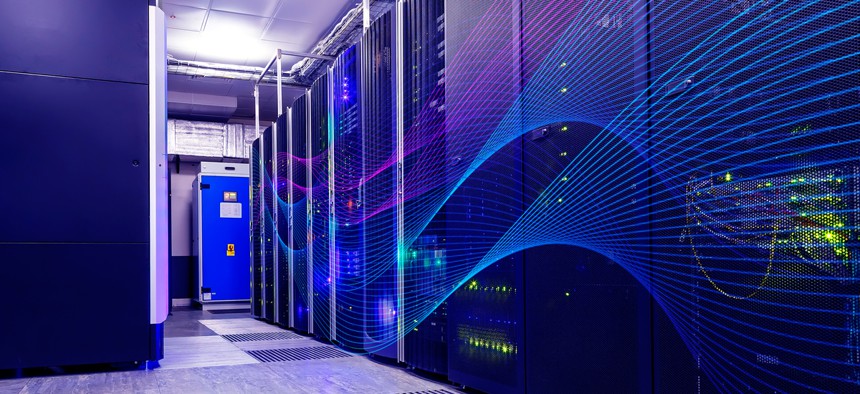Energy Offers Advanced Computing Resources to Solve Domestic Manufacturing Challenges

Timofeev Vladimir/Shutterstock.com
The agency launched a new opportunity for industry and academic partners to tap into its top tech tools.
The Energy Department on Tuesday announced aims to grant coveted access to its high-performance computing assets and top scientists’ expertise to chosen collaborators who wish to power new solutions to energy-centered problems presently plaguing American manufacturers.
Through the agency’s latest solicitation released via its High Performance Computing for Energy Innovation—or HPC4EI—Program, selected applicants will have the opportunity to work directly with insiders from across Energy’s national laboratories to conduct high-tech projects on their supercomputing resources aimed at fortifying the United States’ manufacturing sector.
“This program works to advance the use and state-of-the-art of computational platforms and methodologies by U.S. industry so that they can develop and/or optimize products and processes as quickly as possible to enhance competitiveness and reduce national energy consumption,” HPC4EI Director Robin Miles told Nextgov Tuesday. “Ideally, we would like the computational methodologies developed jointly with industry as a result of this program to be a substantive part of the production and/or lifecycle of their products.”
With support from the Office of Energy Efficiency and Renewable Energy’s Advanced Manufacturing Office, this solicitation is sponsored by the HPC4Manufacturing program, which falls under the HPC4EI program’s umbrella, along with the HPC4Materials, and HPC4Mobility programs. Each aims to broaden the use of Energy’s high-performance computing assets to support “transformational” technology development across the various topics, according to the solicitation. More than 100 projects have been funded since the inception of the program in 2015, Miles noted. Lawrence Livermore National Lab manages the HPC4EI program, which usually conducts two solicitation calls a year.
Tuesday’s notice invites interested collaborators to submit two-page concept papers for projects detailing the technical challenges they aim to address using Energy’s resources by June 9. From there, “successful” papers will be paired with a national lab partner to develop full proposals. The final projects chosen will be awarded up to $300,000 to support compute cycles, but industry partners must provide a participant contribution of at least 20% of the total project funding. The agency will host informational webinars to offer up more details on the solicitation May 14 and May 20.
This specific program seeks to use HPC modeling and simulation to overcome impactful manufacturing process challenges, such as accelerating manufacturing techniques to enhance national energy savings, bettering energy conservation and storage technologies and improving certain products’ lifecycle energy consumption.
“By applying advanced modeling, simulation, and data analysis, these projects will improve energy efficiency, increase productivity, reduce cycle time, enable next-generation technologies, investigate intensified processes, lower energy cost, and accelerate innovation,” the solicitation reads.
Miles added that in advanced process and product innovation, “much of the low hanging fruit driven by experimental efforts has been taken.” At the same time, shifts toward new innovation seem decreasingly obvious and changes to existing production processes can seem too financially risky for businesses to make without trusted computational efforts to predict outcomes.
“As experts in advanced computation, we believe that we can enable innovation to the benefit of U.S. manufacturing and improve national energy efficiency for our [Energy] sponsors,” Miles said.
Energy also recently helped spearhead the COVID-19 High Performance Computing Consortium, which enables appropriate researchers anywhere to tap into its supercomputers to boost studies that could help combat the coronavirus pandemic.
NEXT STORY: The Army Wants a Wearable COVID-19 Detector






